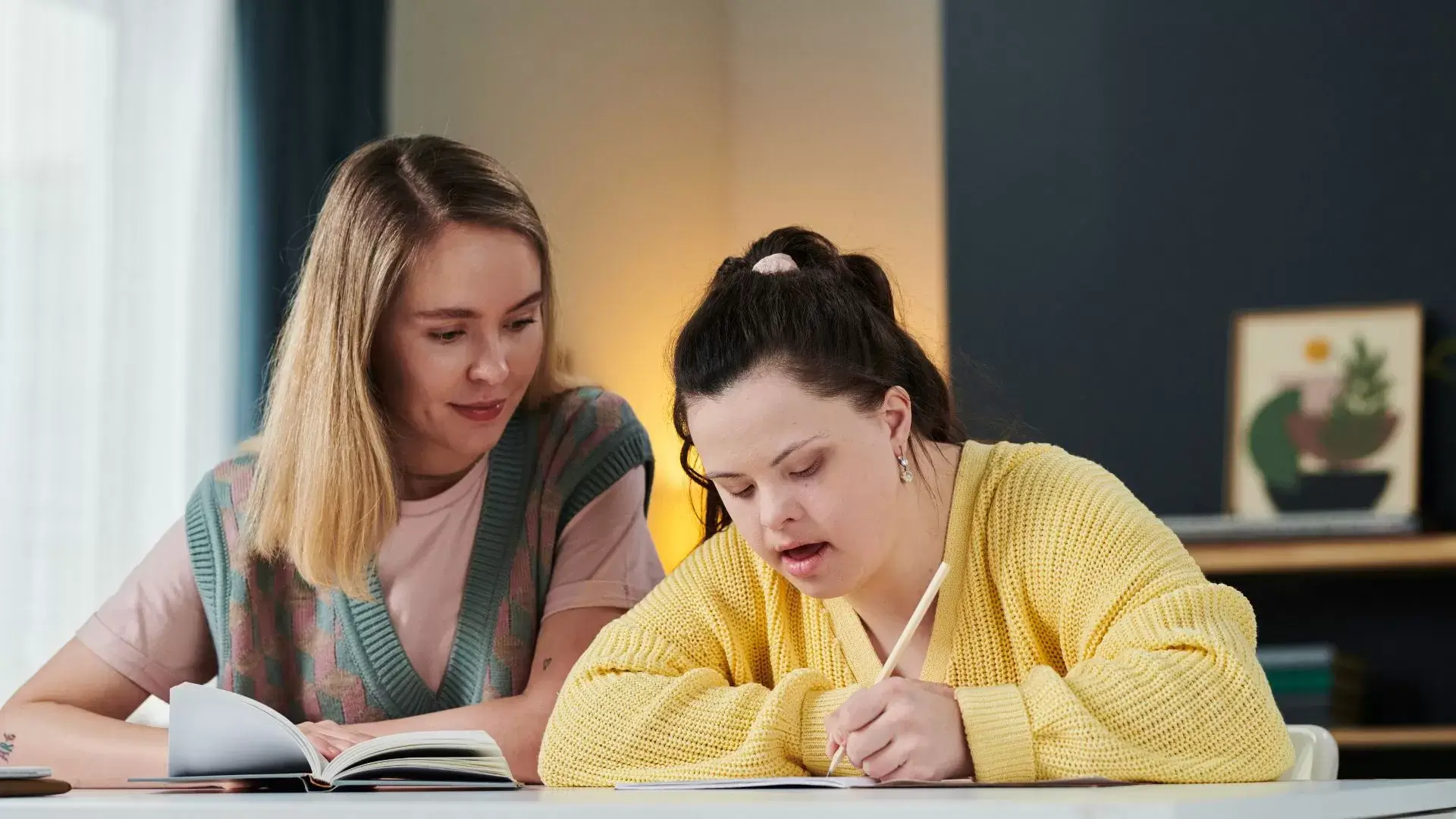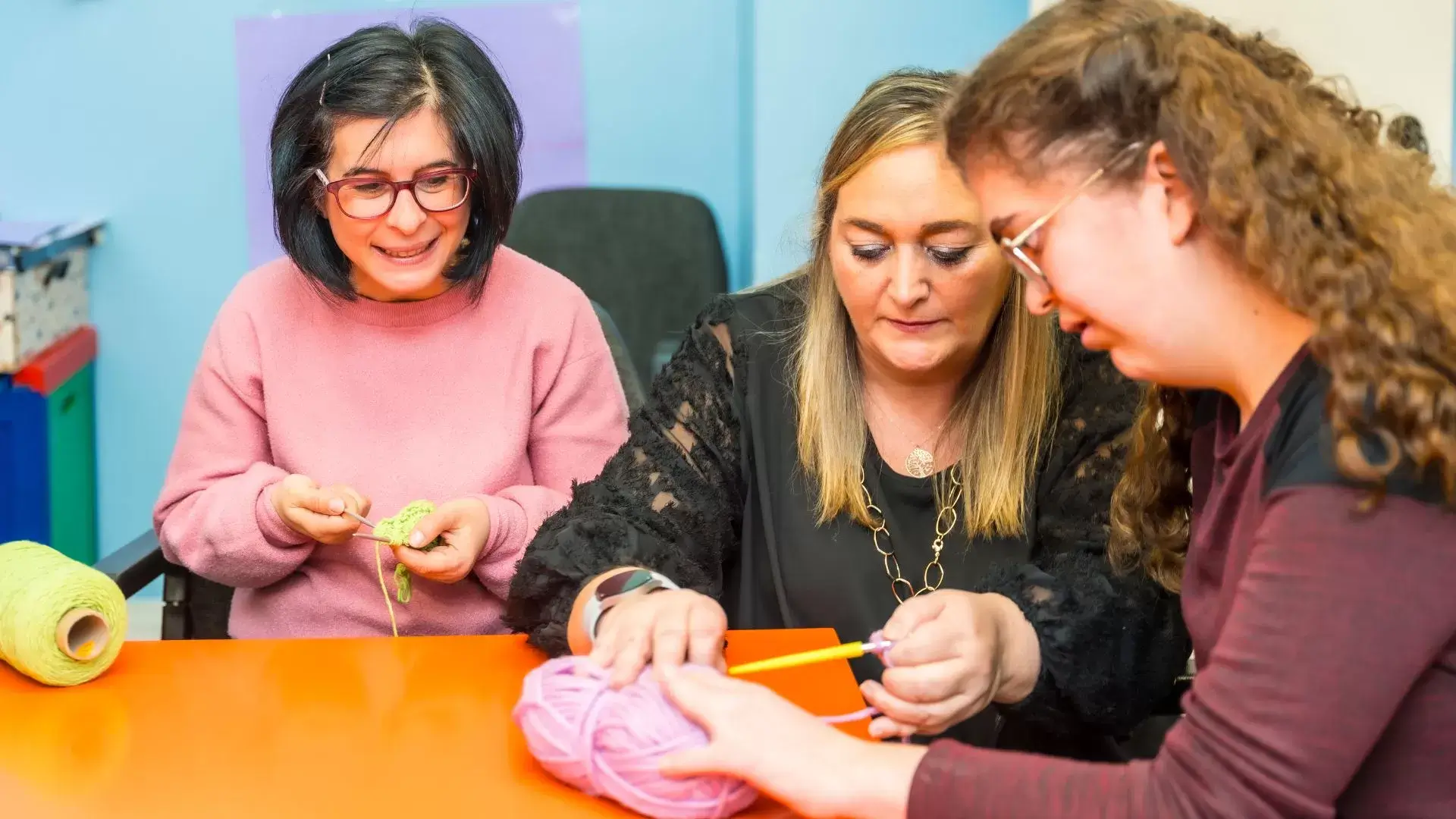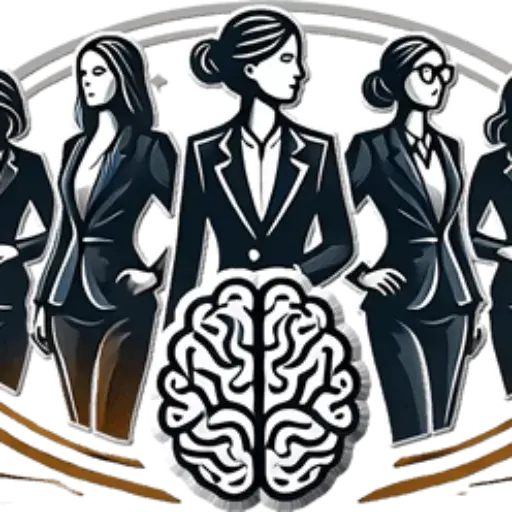Women's Mental Health Counselling Therapy for Intellectual Disability in Oakville
We recognize that finding the right support in Oakville for women with intellectual disabilities is essential for emotional well-being. Women’s mental health counselling provides a safe space to address unique challenges, such as anxiety and depression, while fostering personal growth. Our approach incorporates trauma-informed care and techniques like Cognitive Behavioral Therapy to help manage difficult emotions and develop healthier coping strategies. We’re here to empower women, validating their experiences and promoting connection through community support. There’s so much more we can uncover together to enhance mental health and resilience on this journey.

About Women's Mental Health Counselling Therapy
Oakville Womens Mental Health Counselling therapy is designed to address the unique challenges we face, helping us navigate our emotions and experiences in a supportive environment. This type of therapy focuses on our specific needs, recognizing that women often encounter issues related to emotional well-being, trauma recovery, and self-esteem.
In our sessions, we can explore various coping strategies tailored to our experiences. Whether we’re dealing with anxiety, depression, or the aftermath of trauma, the guidance provided through mental health counseling can empower us. We’re not alone in this journey; the emotional support we receive helps us build resilience and learn healthier ways to cope with life’s challenges.
Women’s therapy fosters a safe space where we can openly discuss our feelings, fears, and aspirations. It’s a place to validate our experiences and emotions, reinforcing that seeking help is a sign of strength. Together, we can cultivate a deeper understanding of ourselves, enhancing our emotional well-being and paving the way for lasting change. By prioritizing our mental health, we’re investing in our future, ensuring we thrive in all aspects of our lives.
Exploring Intellectual Disability in Women: Key Insights
Understanding the unique experiences of women with intellectual disabilities is essential for fostering an inclusive and supportive environment that addresses their specific needs and challenges. Many of us may not realize how deeply intellectual disability can affect emotional health and self-worth. Women often face additional societal pressures that can impact their psychological well-being, making it vital to provide tailored mental health resources.
In our journey toward emotional recovery, we benefit greatly from trauma-informed care, which recognizes the impact of past traumas and promotes healing. Women’s support groups can be invaluable spaces where we share our experiences, learn coping mechanisms, and build resilience together. Through these connections, we not only validate each other’s feelings but also empower one another to take charge of our mental health.
Engaging in women’s mental health counselling therapy specifically designed for those with intellectual disabilities offers unique insights into our struggles and strengths. It’s important to remember that our voices matter, and with the right support, we can navigate our emotional landscapes. Together, we can foster an environment that uplifts and nurtures our well-being, encouraging us to thrive in every aspect of life.

How Mental Health Counseling Supports Women with Intellectual Disabilities
Mental health counseling plays an essential role in helping us navigate the complexities of our emotional well-being, especially for those of us with intellectual disabilities. Through women’s mental health support, we can explore our feelings and experiences in a safe environment, promoting emotional resilience. Mental health therapy often focuses on anxiety management, allowing us to identify triggers and develop coping strategies that enhance our daily lives.
As we engage in counseling, we also commence a journey of personal growth. This holistic wellness approach helps us address not only identity issues but also relationship issues that may arise in our lives. We learn to understand ourselves better, which fosters a sense of empowerment.
For many of us, emotional trauma recovery is an essential aspect of therapy. By addressing our past experiences, we can heal and move forward. Counselors often incorporate various techniques, including cognitive behavioral therapy, to help us reshape negative thought patterns and build healthier habits.
Ultimately, mental health counseling offers us invaluable tools to navigate our unique challenges, fostering a supportive community that uplifts and empowers each other. Together, we can work towards a brighter, more fulfilling future.
Using Cognitive Behavioral Therapy (CBT) to Empower Women with Intellectual Disabilities
Cognitive Behavioral Therapy (CBT) can serve as a powerful tool for us, helping to reshape our thoughts and behaviors in ways that empower women with intellectual disabilities to live fuller, more confident lives. Through women’s counseling services, we can learn how our thoughts influence our feelings and actions, particularly when facing challenges like anxiety and depression.
By focusing on empowerment, CBT encourages self-awareness, allowing us to recognize negative thought patterns that may contribute to mood disorders. We can develop healthier coping strategies, enhancing our mental wellness and providing us with effective stress management tools. In our sessions, we’ll work together to identify triggers and practice new behavioral techniques that promote positive change.
CBT isn’t just about addressing current issues; it’s about building resilience for the future. As we engage in this behavioral therapy, we’ll cultivate a supportive environment where we can share our experiences, learn, and grow together. Ultimately, the skills we gain through CBT will help us navigate life’s challenges, fostering a sense of agency and independence that enriches our lives and strengthens our communities.

Tackling Anxiety and Depression in Women Living with Intellectual Disabilities
When we confront anxiety and depression, it’s vital to recognize how these challenges can uniquely affect women living with intellectual disabilities, often requiring tailored approaches to foster resilience and well-being. Many of us may experience heightened anxiety, particularly surrounding notable life changes, such as motherhood, which can lead to postpartum depression.
In such instances, anxiety counseling and depression counseling become essential tools in our toolkit for women’s emotional health. Psychotherapy for women can provide a safe space for exploring feelings and developing emotional regulation strategies. We can learn effective stress relief techniques that help us manage daily life more effectively.
Additionally, focusing on self-care practices is paramount. Simple activities like mindfulness, art therapy, or physical exercise can greatly improve our mental health. For those who have faced trauma, integrating trauma therapy into our counseling can be beneficial in addressing underlying issues.
Trauma-Informed Approaches to Care for Women with Intellectual Disabilities
Understanding the unique experiences of women with intellectual disabilities is important for implementing trauma-informed approaches that truly support their healing and growth. We acknowledge that many of these women face emotional trauma that stems from various life experiences, making it imperative to tailor our mental health advocacy efforts to address their specific needs.
Utilizing gender-specific therapy within our trauma-informed frameworks allows us to create a safe space for open dialogue about women’s issues. Psychotherapy and psychological therapy can be particularly beneficial, focusing on the intersection of trauma and disability. We also emphasize holistic therapy approaches, integrating mind, body, and spirit to foster a thorough healing experience.
In our work, we often incorporate relationship counseling, as strong support systems are essential for recovery. Additionally, we realize that some women may struggle with addiction treatment, and addressing these challenges within a trauma-informed context is important for long-term success. By prioritizing the unique experiences of women with intellectual disabilities, we can enhance their resilience and promote a more inclusive environment where they can thrive. Together, we can foster healing and empower these women to reclaim their narratives.
Building Emotional Regulation and Resilience for Better Well-Being
Building emotional regulation and resilience is essential for women maneuvering the complexities of mental health challenges, as it empowers them to respond to difficulties with strength and confidence. By focusing on emotional healing, we can cultivate a deeper understanding of ourselves, which is significant during life changes. In our journey toward wellness, we often encounter stressors that require effective stress reduction and anger management techniques.
Mindfulness-based therapy plays an important role in this process, allowing us to stay present and grounded amidst emotional turbulence. As we engage in gender-focused therapy, we learn to navigate the unique challenges women face, fostering a sense of community and support. This approach nurtures resilience, helping us rebuild after trauma and promoting overall mental health care.
Together, we can explore various strategies that enhance our emotional resilience, including practicing self-compassion and developing healthy coping mechanisms. By sharing our experiences and insights, we empower one another to embrace our emotions and foster a supportive environment. In doing so, we pave the way for sustainable emotional regulation, ultimately leading to a healthier, more fulfilling life.
Family Counseling: A Pillar of Support for Women with Intellectual Disabilities
Family counseling serves as an essential source of support for women with intellectual disabilities, helping to foster understanding, connection, and empowerment within their families. Through family counseling, we can explore emotional intimacy and establish healthy boundaries, which are vital for nurturing relationships. Support groups offer an additional layer of comfort, allowing families to share experiences and learn from one another.
Women’s empowerment is at the heart of these counseling sessions, as they provide a platform for women to express their needs and aspirations. By participating in trauma recovery programs, families can address past challenges and work towards healing collectively. For those facing co-occurring disorders, counseling for women can integrate addiction resources, ensuring that every aspect of well-being is considered.
Together, we can create a supportive environment that encourages growth and resilience. By actively engaging in family counseling, we’re not just addressing immediate concerns; we’re building a foundation for lasting change. Ultimately, this collaborative effort strengthens family bonds and promotes a greater understanding of the complexities faced by women with intellectual disabilities, paving the way for a brighter future for all involved.
Life Skills Development and Adaptive Functioning Strategies
Developing life skills and adaptive functioning strategies is essential for empowering women to navigate daily challenges with confidence and resilience. Through targeted life skills development, we can enhance our ability to manage everyday tasks, emotional well-being, and relationships. In our counseling and therapy sessions, we focus on practical strategies that improve our work-life balance, helping us to feel more in control amidst the pressures we face.
We know that anxiety disorders and depression can greatly impact our quality of life. That’s why incorporating adaptive functioning strategies into our treatment plans is vital. These strategies help us build coping mechanisms and foster a sense of autonomy. Group therapy can be particularly effective, as it provides a supportive environment where we can share experiences, learn from one another, and strengthen our community ties.
As we engage in this process, we not only work on personal growth but also promote women’s empowerment. By addressing our mental health needs through life skills development and adaptive strategies, we equip ourselves to face challenges head-on, ultimately leading to a more fulfilling and balanced life. Together, we can rise above obstacles and thrive.
Fostering Social Integration and Meaningful Relationships
As we cultivate our life skills and adaptive strategies, fostering social integration and meaningful relationships becomes an essential part of our journey toward improved mental health and overall well-being. Building strong connections with others not only enhances our sense of belonging but also supports our women’s empowerment and self-esteem, allowing us to embrace our body image more positively.
Mindfulness practices can help us become more aware of our feelings and reactions in social situations, allowing us to navigate relationships with greater ease. For those of us dealing with trauma or behavioral addiction, seeking support through grief counseling or family therapy can provide a safe space to explore our emotions and develop healthier connections.
Adopting Holistic and Wellness-Centered Strategies
To enhance our mental well-being, we can embrace holistic and wellness-centered strategies that nurture both our body and mind. By focusing on practices like mindfulness meditation, we can cultivate awareness and emotional resilience, which is crucial for mood stabilization. For women managing challenges like eating disorders or addiction recovery, these strategies become essential tools on our recovery journey.
Incorporating gender-focused therapy allows us to address unique issues such as perinatal mental health and maternal health, fostering a supportive environment where we can explore our experiences. Additionally, achieving hormonal balance through nutrition and exercise can greatly impact our mental health, empowering us to take charge of our well-being.
As we prioritize women’s empowerment, we create a community where we uplift each other, sharing our struggles and victories. By integrating these holistic approaches, we not only enhance our mental health but also reinforce our connections with one another. Together, we can build a foundation of support that acknowledges the complexities of our experiences while promoting a healthier, balanced life. Remember, every step we take in this journey matters, and we’re not alone in this process.
Providing Vocational Training and Enhancing Educational Opportunities
Building on the importance of holistic well-being, providing vocational training and enhancing educational opportunities can empower women to gain confidence and independence in their personal and professional lives. By focusing on women’s empowerment, we can create a supportive environment that addresses their unique challenges, including reproductive mental health and PTSD.
Vocational training offers practical skills that enable women to navigate the workforce effectively, reducing feelings of burnout often linked to unfulfilled aspirations. In addition, educational opportunities can help them explore areas like sexual health and addiction management, fostering a thorough understanding of their needs.
Incorporating gender-focused therapy into these training programs enhances their relevance, allowing women to connect their experiences with broader societal issues. Support networks are vital during this journey, providing essential encouragement and resources.
Moreover, integrating aspects of marriage counseling can help women balance their personal relationships with their professional ambitions, creating a harmonious life. Together, we can champion these initiatives, ensuring that women with intellectual disabilities not only thrive but also contribute meaningfully to society. By investing in their future, we’re paving the way for a more inclusive world.
Medical and Therapeutic Solutions for Managing Intellectual Disabilities
Finding effective medical and therapeutic solutions for managing intellectual disabilities is essential for fostering a sense of autonomy and well-being in individuals. We recognize that women’s empowerment plays a significant role in this journey, as it encourages self-advocacy and personal growth. Gender-focused therapy can be particularly beneficial, addressing unique challenges women face, such as feelings of shame and guilt that often accompany impulsivity and compulsive behavior.
Recovery programs tailored for women provide an inclusive environment, allowing them to openly discuss addiction symptoms and their impacts on daily life. Through addiction education, we can equip individuals with the tools needed for self-control, helping them navigate their experiences with greater confidence.
It’s important to create a supportive space where women can explore their emotions and develop coping strategies, learning that they’re not alone in their struggles. By focusing on both medical interventions and therapeutic approaches, we can empower women to break free from the cycle of addiction while managing intellectual disabilities. Together, we can pave the way for a brighter future, filled with hope and resilience.
Connecting Women to Valuable Resources and Support Systems
Many women face unique challenges that can make it difficult to access the resources and support systems they need, but together, we can create pathways that foster connection and empowerment. For many, steering through issues like post-traumatic stress or intimacy disorders can feel overwhelming. That’s where gender-focused therapy comes in, offering a safe space to explore these challenges and work toward healing.
We know that addressing sexual behavior and sexual dysfunction is vital for women dealing with sexual compulsivity or addiction triggers. Connecting with appropriate sex therapy services can provide valuable tools for understanding and managing these behaviors. By fostering a supportive network, we can facilitate relapse prevention strategies that empower women to reclaim their lives.
Moreover, sharing resources like local support groups, workshops, and online communities can help build a sense of belonging. When we connect, we create a tapestry of strength, resilience, and shared experiences. It is important to remind ourselves that we’re not alone in this journey; we’re in this together, seeking to uplift each other and foster women’s empowerment through every step of the healing process.
Empowering Personal Growth and Strength Through Therapy in Oakville
Therapy in Oakville offers a nurturing space where women can explore their personal growth and uncover the strength within themselves, fostering resilience and self-discovery. We believe that women’s empowerment is essential, especially for those traversing life with an intellectual disability. Through mental health counselling, we create an environment where women can openly express their feelings and experiences.
In therapy, we focus on building self-esteem and helping women recognize their inherent strengths. This journey of personal growth not only enhances their understanding of themselves but also equips them with the tools needed to face life’s challenges. As we engage in discussions, we celebrate the small victories, reinforcing the belief that each step forward is significant.
Our supportive community empowers women to connect with one another, sharing experiences and encouraging resilience. In Oakville, we are dedicated to ensuring that every woman feels valued and understood. By embracing therapy, we can collectively foster an atmosphere of growth and strength. Together, we can transform the challenges of intellectual disability into opportunities for empowerment, ultimately promoting mental health and well-being for all.
About Town of Oakville
Nestled along the shores of Lake Ontario, Oakville is a vibrant town that not only embraces its rich history but also champions community well-being and inclusivity. We take pride in living in a place that actively supports women’s empowerment through various initiatives and services. In Oakville, we prioritize mental health, recognizing that gender-focused therapy can make a significant difference, especially for those dealing with intellectual disabilities.
Our community is proactive in addressing issues like compulsive sexual behavior and sexual dependency. Local resources, including 12-step programs, provide support for those struggling with hypersexuality or pornography addiction. We acknowledge that addressing sexual impulses and urges is essential for personal growth and healing.
Through counseling and therapy tailored to women’s unique experiences, we create a safe environment where individuals can explore their challenges and find pathways to recovery. Our commitment to building an inclusive community means we are always looking for ways to uplift each other, fostering connections that promote mental health and well-being. Together, we are working towards a future where every woman feels empowered to overcome her struggles and thrive in every aspect of life.

Frequently Asked Questions
What Qualifications Should a Counselor Have for Working With Women With Intellectual Disabilities?
When we think about the qualifications a counselor should have for working with women with intellectual disabilities, it’s essential they possess a background in psychology or social work, ideally with specialized training in intellectual disabilities. They should be empathetic, patient, and skilled in communication. Additionally, experience in trauma-informed care and cultural competence is important. We all deserve a supportive environment where our unique needs are understood and respected.
How Can Families Support Women in Mental Health Counseling Sessions?
We can support women in mental health counseling sessions by encouraging open communication and actively listening to their thoughts and feelings. It’s crucial to be present and patient, showing our understanding and validation. We should also help them prepare for sessions by discussing what they want to address. Additionally, attending sessions together, if appropriate, can provide comfort and reinforce their support system, making the counseling experience more effective and reassuring for them.
Are There Specific Therapies More Effective for Women With Intellectual Disabilities?
When we think about effective therapies for women with intellectual disabilities, we recognize that individualized approaches often yield the best results. Cognitive Behavioral Therapy (CBT) and Dialectical Behavior Therapy (DBT) have shown promise, as they’re adaptable and focus on practical skills. We also appreciate the importance of incorporating supportive environments and family involvement, which can enhance the therapeutic process. Ultimately, understanding each woman’s unique needs is key to finding the right fit for her mental health journey.
What Role Do Peer Support Groups Play in Mental Health Therapy?
Peer support groups play a crucial role in mental health therapy. They create a safe space where we can share our experiences, offer encouragement, and feel understood. By connecting with others who face similar challenges, we build a sense of community and reduce feelings of isolation. These groups often foster a sense of belonging, helping us gain insights and coping strategies that enhance our overall well-being. Together, we can navigate our mental health journeys more effectively.
How Can I Find a Therapist Specializing in Women's Mental Health in Oakville?
Finding a therapist specializing in women’s mental health can feel overwhelming, but we’re here to help. We can start by searching online directories or local mental health organizations that list qualified professionals. Asking for recommendations from friends or healthcare providers can also guide us. It’s important to check their credentials and see if they offer a free consultation, so we can guarantee a good fit before committing. We’re not alone in this journey!

